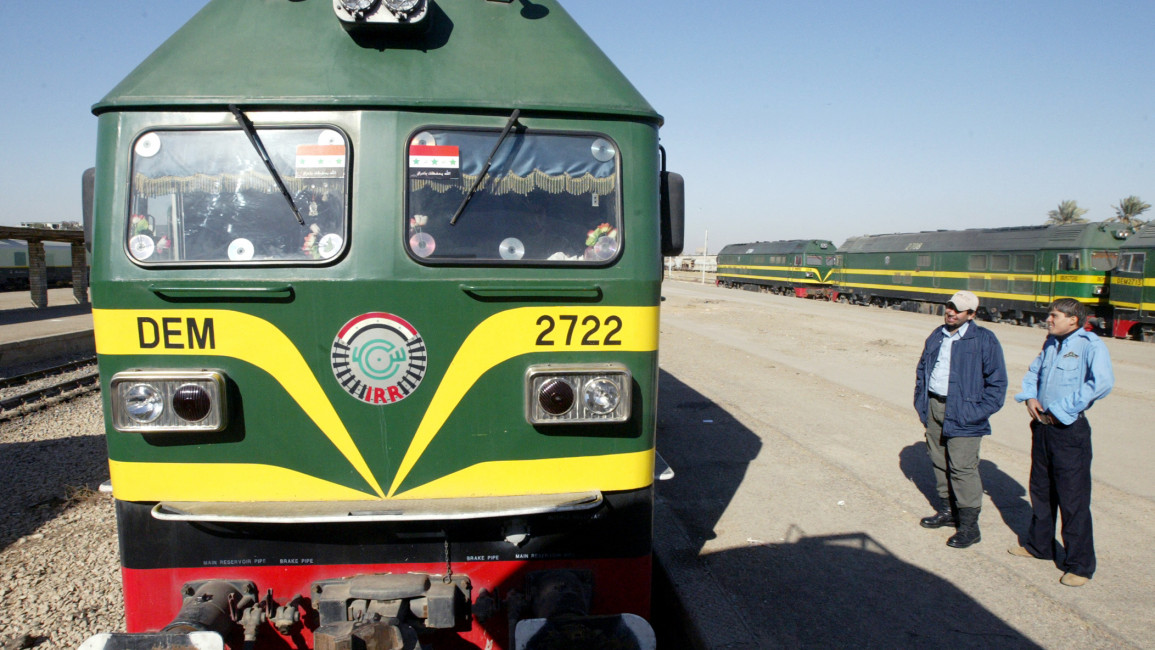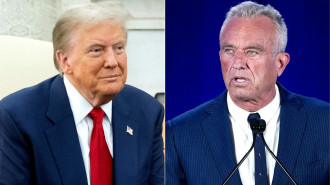Iraq grapples with $18 billion railway corruption scandal amid political tensions
Iraq's Integrity Commission Chairman, Judge Haider Hanoun, has stirred public outrage after revealing an $18 billion corruption scandal tied to the country's railway development, described as part of the "Heist of the Century."
The revelation comes at a politically sensitive time, as Prime Minister Mohammed Shia al-Sudani's administration faces growing scrutiny over its ability to combat systemic corruption and deliver reforms ahead of the 2025 parliamentary elections.
The scandal emerged during a press conference in Erbil, where Judge Hanoun exposed massive financial waste within a contract related to Iraq's railway system. Despite the case being referred to Judge Diaa Jafar Latif, a specialist in corruption cases, two months ago, no significant progress has been made, raising concerns about the government's transparency and its handling of infrastructure projects.
Attempts to contact members of Iraq's parliamentary Integrity Commission, as well as government spokesperson Basim Al-Awadi, by The New Arab have not been successful.
Railway scandal deepens corruption concerns
Earlier this month, Iraqi MP Yasser Al-Husseini raised alarm over a contract for the rehabilitation of the Al-Faw-Fishkhabour railway line.
During an appearance on Iraq's UTV with journalist Ahmed Mullah Talal, Al-Husseini revealed a copy of the $22.5 billion contract signed by Iraq's General Railway Company, claiming it had been awarded to a company led by Nour Zuhair, a businessman already implicated in the "Heist of the Century" scandal.
The Ministry of Transport, however, denied any wrongdoing, with spokesperson Maitham Al-Safi defending the contract, citing extensive damage to Iraq's railway infrastructure due to terrorism and sabotage. He further noted that rebuilding the system costs approximately $5 million per kilometre and that all contracts were transparent and overseen by a financial advisory firm.
As his two-year term nears its conclusion, Prime Minister Sudani has positioned himself as a reformer committed to tackling corruption and diversifying Iraq's economy. But with rising public dissatisfaction, critics argue that his anti-corruption measures could be part of a broader political strategy aimed at securing his position for the upcoming elections.
Sudani's administration has attempted to frame these revelations within Iraq's larger fight against corruption. At the Arab Forum for Promoting Transparency and Good Governance, held in Baghdad on Tuesday, Judge Hanoun emphasised that Iraq has improved its ranking on Transparency International's Corruption Perceptions Index, moving up four positions to 153rd globally in 2023.
However, for many Iraqis, these incremental gains are overshadowed by pervasive corruption, unemployment, and deteriorating public services.
During the same forum, Ghulam Isaczai, Deputy Special Representative of the United Nations in Iraq, stressed that under Sudani's leadership, the government's priority remains curbing corruption, fostering economic diversification, and improving public services. Critics, however, remain sceptical about whether these efforts will be enough to combat the entrenched corruption that has plagued Iraq for decades.
On Sunday, government spokesperson Basim Al-Awadi addressed these concerns, stating on state TV that Sudani had decisively intervened to stop several corruption cases before they became public. He also noted that Sudani, who is backed by the Coalition for the Administration of the State—an alliance of pro-Iran Shia factions, Sunni groups, and two Kurdish parties—has avoided media appearances to focus on work.
Al-Awadi further emphasised that electing a new parliament speaker would be a step toward achieving a consensus-based ministerial reshuffle.
Brewing storm ahead of elections
Adding to the political turbulence, an Iraqi criminal court issued arrest warrants in late August for Nour Zuhair and Haitham al-Juburi, a former adviser to ex-prime minister Mustafa al-Kadhemi, in connection with the theft of $2.5 billion in public funds. This case, also part of the "Heist of the Century," has sparked widespread anger among Iraqis who are weary of corruption.
Zuhair, who was arrested in October 2022 while trying to flee Iraq, was later released on bail after returning $125 million and pledging to repay the rest in instalments. He recently made headlines again after being involved in a car accident in Lebanon following an interview with an Iraqi news channel.
As Iraq approaches an election cycle, the Sudani administration finds itself navigating between promoting its anti-corruption achievements and addressing rising public discontent. The timing of the Arab Forum for Promoting Transparency and Good Governance, along with the administration’s emphasis on small victories in the fight against corruption, is seen by some as a broader political strategy to regain trust and secure votes in the 2025 parliamentary elections.







 Follow the Middle East's top stories in English at The New Arab on Google News
Follow the Middle East's top stories in English at The New Arab on Google News
![Ben & Jerry's has taken Unilever to court for its alleged attempts to silence it [Getty]](/sites/default/files/styles/image_330x185/public/2024-11/GettyImages-2183900214.jpg?h=199d8c1f&itok=jEcYtQ64)

![The meeting between Musk and Iravani was 'positive', Iranian sources said [Getty]](/sites/default/files/styles/image_330x185/public/2024-11/GettyImages-2184077711.jpg?h=f5c1ac2a&itok=Wb2mIhsF)